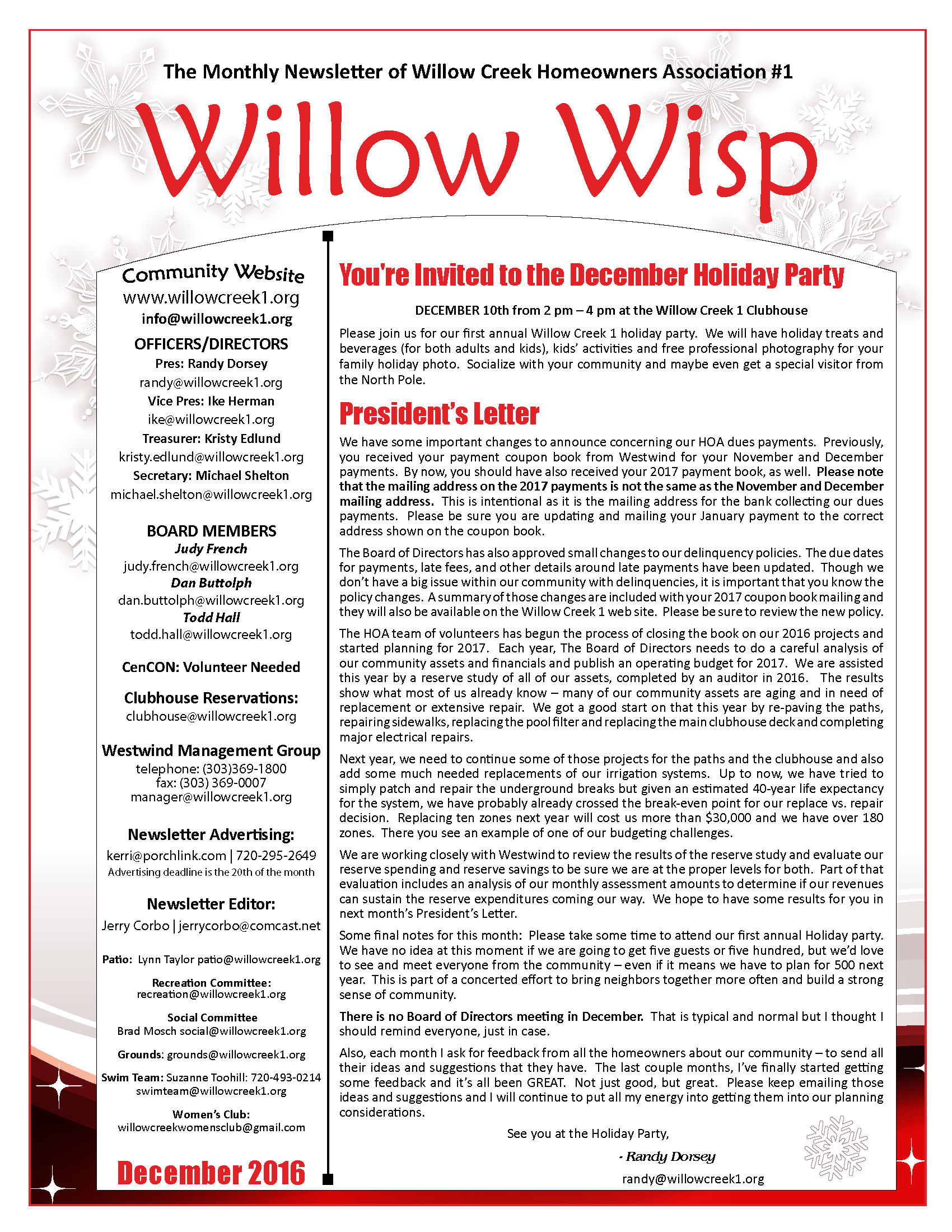

"Your news and ideas have been a Godsend and so helpful, you can't imagine.

Given all the pros and cons, think hard before determining which path you'll take. A moderated forum can be a middle-ground approach between no forum and an unregulated free-for-all, but it requires a time committment on someone's part. So a community forum may be a way to get early warning of members' concerns. Then again, if members are voicing concerns online, they're likely doing it among themselves, too. Even so, if your goal is to foster a positive atmosphere in your community, you may not meet it by allowing members to voice their grievances, sometimes in less-than-respectful language. Most courts have held that Webmasters of online forums can't be held liable for the libelous writings of people who comment on the boards. Online community bulletin boards can be great, but they can also invite trouble. Because those ads would violate fair housing laws, you'd have to reject them or insist that the illegal restrictions be removed.ĥ. For example, if you allow people to submit classified ads, you may get a submission from a person seeking a roommate but restricting applicants to a single gender or excluding people with children. Don't publish any ads that include illegal pitches. The caveat, however, is that you must retain control over the content of ads in your newsletter. Some boards increase association revenue by accepting advertising in their newsletters. In addition to delinquencies, avoid rumors, commenting on disputes among members, and opinion pieces that could generate unnecessary controversy.Ĥ. Though you may be within your legal rights to publish lists of members delinquent in paying assessments or fines (truth is an absolute defense to claims of libel), it's probably not worth the trouble you'll create. Create forms for member suggestions and requests for repairs, along with forms that allow members to submit information for publication in the newsletter and suggestions to the board.ģ. For example, if your clubhouse is available for rent, put a rental request form online. Also include all the forms your members frequently use and those that will make your job easier.

Those might include your CC&Rs, meeting minutes, financial statements (without account numbers, of course), budget information, and archived copies of newsletters.

Want to cut down on the number of times you photocopy your CC&Rs for members? If your newsletter will be online, add links to documents that members frequently request. As a precaution, also seek permission from members before including photos, even those taken at community events.Ģ. For example, if you're considering publishing information about Sue Brown's new job, send her a brief e-mail asking her to provide you with a short paragraph describing her new position. How do you know what information members don't want published? Ask them-in writing. Be factual and careful not to include personal information about your members that they may not want to be publicly known. Announcements could range from notices about members' new babies and new jobs to events planned for your community, dates and times of meetings, planned maintenance or repair work, and reminders about rules. Include news about your members, association, and local community. Here's a list of what you should and shouldn't include.ġ. But you can't just print anything you want in an association newsletter. Whether it's online or on old-fashioned paper, a newsletter is a good way to keep your owners informed of issues in your association and to build a sense of community.


 0 kommentar(er)
0 kommentar(er)
